Lessons from the Ghosn affair
Ghosn lessons
It is difficult to overstate the sense of scandal that has accompanied the revelations that Carlos Ghosn, chairman of Nissan, has been accused of significant acts of misconduct.
Mr Ghosn has virtual cult-hero status in Japan for reviving Nissan, and he is the lynch pin in the alliance Renault-Nissan-Mitsubishi Motors, where he is both CEO and Chairman, as well as being CEO of Renault.
The allegations span many years and include understating his Nissan earnings to the stockmarket and the misuse of company assets. It is early days and this saga is likely to run, but we can already draw some lessons from a governance and compliance perspective.
Firstly, it is not all bad. The alleged wrongdoing was uncovered by a whistleblower, subsequently followed up by a lengthy and extensive internal investigation. Having received the full investigative report, the company seems to have acted decisively and transparently against someone at the most senior level.
Clearly, the company has systems and processes that can respond to individual transgressions. But very few such transgressions are purely anomalies. Why did the board and shareholders not ask more questions about potential conflicts as Mr Ghosn accumulated more power, when he took on chairman and CEO roles across major auto businesses?
And then the question must be asked: how clear are the company’s policies when it comes to the use and misuse of company assets by employees? It is common that Asian executives tend to be paid less than their Western counterparts on the implicit understanding that they have greater license to use company resources. Has this become too much of a grey area?
When assessing the cause of unethical executive behaviour, it is necessary to conduct a root-and-branch analysis. Such events are very rarely solely caused by the actions of a few unscrupulous individuals. They tend to be the result of multiple institutional, process-related and cultural failings. Now that the internal investigation in to Ghosn is complete, it is a good time to broaden the analysis to the corporate policy environment under which the allegations took place.
Credit: Kremlin | Monday, 26th November 2018
Who is CRI Group?
Based in London, CRI Group works with companies across the Americas, Europe, Africa, Middle East and Asia-Pacific as a one-stop international Risk Management, Employee Background Screening, Business Intelligence, Due Diligence, Compliance Solutions and other professional Investigative Research solutions provider. We have the largest proprietary network of background-screening analysts and investigators across the Middle East and Asia. Our global presence ensures that no matter how international your operations are we have the network needed to provide you with all you need, wherever you happen to be. CRI Group also holds BS 102000:2013 and BS 7858:2012 Certifications, is an HRO certified provider and partner with Oracle.
In 2016, CRI Group launched Anti-Bribery Anti-Corruption (ABAC®) Center of Excellence – an independent certification body established for ISO 37001:2016 Anti-Bribery Management Systems, ISO 37301 Compliance Management Systems and ISO 31000:2018 Risk Management, providing training and certification. ABAC® operates through its global network of certified ethics and compliance professionals, qualified auditors and other certified professionals. As a result, CRI Group’s global team of certified fraud examiners work as a discreet white-labelled supplier to some of the world’s largest organisations. Contact ABAC® for more on ISO Certification and training.
CRI® Group celebrate 2018 International Fraud Awareness Week
CRI® Group is once again a proud supporter of International Fraud Awareness Week, Nov. 11-17, 2018. This global movement aims to minimise the impact of fraud by promoting anti-fraud awareness and education. Companies lose an estimated 5% of their revenue annually due to fraud (ACFE Report to the Nations, 2018) and additional training, prevention programs and best practices are needed to help bring that number down.
A few more “Fraud Facts” help illustrate some statistics in the fight against fraud and corruption (Source: ACFE Report to the Nations, 2018).
- The average fraud lasts 16 months before it is discovered. The longer a fraud lasts, the greater the financial damage (schemes that last for several years can cause hundreds of thousands of dollars).
- In a recent study of fraud cases, the median loss was $130,000. 22% of cases caused losses of $1 million or more.
- The most common detection method for fraud is tips. And organisations that have reporting hotlines are much more likely to detect fraud through tips than organisations without hotlines.
Zafar Anjum, founder and CEO of CRI® Group, said that International Fraud Awareness Week (called Fraud Week, for short) is an important effort to put a spotlight on fraud and help educate people about its perils.
“CRI® Group has been a proud supporter of Fraud Week for past years”, Anjum said. “It’s an important time to urge organisations of all shapes and sizes to conduct proper due diligence and minimise risk. Only by addressing fraud and corruption proactively can we make progress in preventing and detecting it”.
For CRI® Group, though, helping organisations prevent and detect fraud is a year-round commitment. That’s why Fraud Week is a great time to reflect on CRI® Group’s recent efforts in the fight against fraud and to also look ahead to activities on the near horizon.
Here are just a few of the highlights:
Launched Anti-Bribery Anti-Corruption Centre of Excellence (ABAC®)
At CRI® Group, we recognised the need for an independent certification body for ISO 37001: Anti-Bribery Management System. That’s why we founded the ABAC® Center of Excellence – to assist business organisations worldwide in certification for anti-corruption, risk management and compliance. By providing training and certification for ISO 37001, our experts help organisations implement effective anti-bribery management programs using widely accepted controls, systems and best practices in line with local and international legislation.
Hosted ABAC® Summits to help fight corruption
With ABAC® in place, we found that business leaders were eager to learn more about preventing bribery and fighting corruption. The perfect solution was to create and host an ABAC® Summit to gather legal, compliance and risk management experts together in one place to share best practices, demonstrate resources and discuss the latest technology for preventing corruption. The first ABAC® Summit was held last year in Pakistan, and this year’s Summit was hosted in Malaysia – both were an incredible success! Next, the Summit will return to Pakistan (29th January 2019).
Spread knowledge
CRI® Group participated in conferences and educated professionals on fraud and corruption across six locations in four continents. Additionally, our experts discussed ISO 37001 and other anti-bribery management solutions with more than 1,000 professionals around the world. “CRI® Group is comprised of subject-specific experts with diversified speciality areas,” Anjum said. “Our audit team has years of substantive field experience as investigators, compliance officers and legal professionals.”
Engaged in training to enhance expertise
CRI® Group’s audit team has undergone more than 140 hours in continuing ABAC® training. The methods for committing fraud and corruption are ever-evolving, so our agents remain dedicated to their building their skill sets and staying on the cutting edge to help clients be successful in preventing and detecting fraud.
Achieved accreditations for ISO 37001
CRI® Group earned official accreditation from Emirates International Accreditation Center – EIAC (UAE) to administer training and certification for ISO 37001 ABMS. “EIAC provides objective evidence that organisations operate at the highest level of ethical, legal and technical standards,” said Zafar Anjum, founder and CEO of CRI® Group. “That’s exactly where ISO 37001 fits in – helping to protect organisations from bribery and money laundering.”
Raised fraud awareness
CRI® Group has produced more than 50 educational news articles and publications to help educate business leaders, government leaders, professionals and the public about fraud and corruption. Our subject matter experts deliver important information, such as why forensic accounting can be important during a fraud investigation or how risk assessments can be used to better protect your organisation. Our content is created to inform and provide important information that might be missed in today’s news cycles.
Found fraud
Through various client engagements, CRI® Groups investigative analysts found a large number of red flags indicating possible fraud. How many? The answer may be surprising: our agents discovered more than 700 red flags across 80 countries. The first step in fighting fraud is knowing that it exists. The sooner it is discovered, the less damage a fraud scheme can do to an organisation.
During Fraud Week, think about the statistics at the beginning of this article … and ask yourself or your colleagues: Are we doing all we can to prevent fraud? Remember, the landscape is always changing, and fraudsters will do everything they can to use evolving technology and other methods to find vulnerabilities. Moreover, the best way to fight fraud is to prevent it in the first place.
CRI® Group is here to help. Contact us today to learn more about our ABAC® training and certification opportunities, our EmploySmart background checking process, our investigative services and other offerings.
About the International Fraud Awareness Week
CRI® Group is once again a proud supporter of 2021’s International Fraud Awareness Week. Taking place throughout the week of November 14th to November 20th of 2021, International Fraud Awareness Week is a global effort is a move to diminish the influence of fraud by advocating for anti-fraud awareness and education. According to the 2021 ACFE Report to the Nations, organisations continue to lose about 5% of revenue to fraud each year and currently, there are more than 3.3 billion people in the global workforce with all of them having access to or control over some portion of their employer’s cash or assets – an amount which contributes to such a loss.
Corresponding to the most recent ACFE report, other fraud trends which have remained constant throughout the last few years include:
- Asset misappropriation is the most identified scheme
- Tips are the greatest process of exposure
- The lengthier that fraud goes unbridled, the greater the median loss
Zafar Anjum, founder, and CEO of CRI® Group said that International Fraud Awareness Week (called Fraud Week, for short) is a crucial endeavour drawing attention to fraud and aiding to support better education towards communities about the liabilities that accompany fraud. “CRI® Group has been a proud supporter of Fraud Week for past years”, Anjum said. “It’s an important time to urge organisations of all shapes and sizes to conduct proper due diligence and minimise risk. Only by addressing fraud and corruption proactively can we make progress in preventing and detecting it”.
For CRI® Group, though, assisting organisations with the deterrence and detection of fraud is a year-round responsibility which is why Fraud Week is a wonderful occasion to acknowledge CRI® Group’s contemporary exertions in the bout alongside fraud; it is also a wonderful time to look ahead on CRI® Group’s activities which are all nearing their time of action.
Who is CRI® Group?
Based in London, CRI® Group works with companies across the Americas, Europe, Africa, Middle East and Asia-Pacific as a one-stop international Risk Management, Employee Background Screening, Business Intelligence, Due Diligence, Compliance Solutions and other professional Investigative Research solutions provider. We have the largest proprietary network of background-screening analysts and investigators across the Middle East and Asia. Our global presence ensures that no matter how international your operations are, we have the network needed to provide you with all you need, wherever you happen to be. CRI® Group also holds BS 102000:2013 and BS 7858:2012 Certifications, is an HRO certified provider and partner with Oracle.
In 2016, CRI® Group launched the Anti-Bribery Anti-Corruption (ABAC®) Center of Excellence – an independent certification body established for ISO 37001:2016 Anti-Bribery Management Systems, ISO 37301 Compliance Management Systems and ISO 31000:2018 Risk Management, providing training and certification. ABAC® operates through its global network of certified ethics and compliance professionals, qualified auditors and other certified professionals. As a result, CRI® Group’s global team of certified fraud examiners work as a discreet white-labelled supplier to some of the world’s largest organisations. Contact ABAC® for more on ISO Certification and training.
3 ways to protect your Company’s Reputation
In today’s connected business world, there are very few secrets. United Airlines, for example, recently learned the hard way that one ugly incident can go viral and spread around the world in a matter of minutes – not hours, days or weeks. protect company reputation
United initially faced criticism over the rough treatment of a passenger being removed from one of their planes. Then, the company learned a second lesson when its CEO’s response to the crisis seemed somewhat disconnected and uncaring. United was in the middle of a reputational crisis, and its first official response to angry consumers only added more fuel to the fire. Later, the CEO offered an apology and a more compassionate statement – but the damage was done.
There are lessons to be taken from this and other high-profile cases where companies have seen their reputation, which they’ve worked hard to cultivate, trashed in the public spotlight. The fact is, things happen, and no company has a guaranteed way to safeguard their reputation from ever being dinged or facing scrutiny, whether fair or not. But there are ways to mitigate the damage and help ensure your company survives the crisis, and can rebuild its reputation in a positive way.
Know that people are talking about you
In the age of Twitter, Facebook, Yelp and other social engagement sites, people are keen to talk about what they like, dislike, what they wish would be better, and anything else on their mind. That includes your company and your products or services. Accept this and embrace it. Engage with people who post on social media when appropriate, and always in a polite and respectful manner. When there is a legitimate problem, communicate that you are taking the matter seriously and looking to resolve it, and then do so.
1. Be transparent
A way to be proactive in your engagement with others is to ask for feedback. Then be prepared to address it, good or bad. Consumers, stakeholders and even your own employees will be impressed by the open lines of communication and an honest dialog. In this way, you can strive to improve your services and offerings and show that you are receptive to your client’ needs.
2. Protect your customers’ data
Nothing can destroy your reputation among your clients and customers quicker than having to tell them their personal information, which was entrusted to you to remain private and protected, is now in the hands of hackers or criminals because you suffered a security breach. Even worse is when they learn that your company did not take all the measures necessary, or even the most basic ones, to prevent such a breach from occurring. Not only might you be criminally liable, but customers will run from you, not wanting to take a risk that something like that could happen again in the future. In today’s high-risk environment, you must have the most sophisticated and up-to-date security measures in place to protect your date – and your reputation.
3. Conduct due diligence
How much do you know about your third-party partners – those suppliers and contractors that you’ve trusted for years, or new ones with whom you seek to engage? An unethical partner can have serious effects on your own company’s reputation – bribery, corruption, supply chain problems are all issues that can end up tainting your own business and causing your customers to lose trust in your products or services. Conducting thorough due diligence, with background checks and full risk assessments, is the only way to help protect your reputation from potential harm.
It may feel sometimes like your company’s reputation is out of your control. However, there are steps you can take to help manage your reputation and help steer the conversation. It becomes more difficult when you wait, and try to undo later the damage that has already been done. That’s why being proactive in maintaining a positive reputation is the best strategy. Contact CRI Group today and let us help you stay on the path to managing your message and your reputation.
Who is CRI Group?
Based in London, CRI Group works with companies across the Americas, Europe, Africa, Middle East and Asia-Pacific as a one-stop international Risk Management, Employee Background Screening, Business Intelligence, Due Diligence, Compliance Solutions and other professional Investigative Research solutions provider. We have the largest proprietary network of background-screening analysts and investigators across the Middle East and Asia. Our global presence ensures that no matter how international your operations are we have the network needed to provide you with all you need, wherever you happen to be. CRI Group also holds BS 102000:2013 and BS 7858:2012 Certifications, is an HRO certified provider and partner with Oracle.
In 2016, CRI Group launched Anti-Bribery Anti-Corruption (ABAC®) Center of Excellence – an independent certification body established for ISO 37001:2016 Anti-Bribery Management Systems, ISO 37301 Compliance Management Systems and ISO 31000:2018 Risk Management, providing training and certification. ABAC® operates through its global network of certified ethics and compliance professionals, qualified auditors and other certified professionals. As a result, CRI Group’s global team of certified fraud examiners work as a discreet white-labelled supplier to some of the world’s largest organisations. Contact ABAC® for more on ISO Certification and training.
Why should you want your partners to be ISO 37001 certified?
We at the CRI Group believe that businesses that are being run free of corruption accomplish their vision and mission sooner and easier. They bring good to the world more effectively than others. When a business has a clearly set vision and a detailed plan on how to reach it, all it takes to accomplish it is to stick to the plan. However, since companies have to cooperate with other companies in their regular work, they don’t have a choice but rely on someone else’s ethics and principles of doing business. But we all know that business partners are not always reliable. Starting cooperation with one requires conducting thorough due diligence of their work before doing any serious business with them.
The risks could be enormous when your potential partners are involved in criminal activities. Unfortunately, white-collar crimes are not eradicated from the business world, especially when it comes to corrupt activities. Many acts of corruption are often in some kind of gray area – maybe they are legal, maybe not, but certainly are not ethical. In such circumstances, some businessmen don’t hesitate to reach for methods that don’t comply with your legal and ethical standards. If you are cooperating with such partners, you know that risks for your companies are huge. Not only because unknowingly you could be involved in corrupt practices and be investigated by law enforcement authorities, but also because they ruin your reputation and make other potential partners avoid working with you. You are aware that a mistake in choosing business partners can be very costly for your business. Sometimes these risks are easy to mitigate, but some of them could bring your company on the edge of shutting down.
This is where the ISO 37001 standard helps. If you get certified, that would mean implementing numerous anti-bribery standards that will protect your business from bribery. By requiring your partners be certified as you are, you show your preference to cooperate with partners who tackle bribery as well. That speaks of your values as a company. It will let the world know that your anti-bribery values don’t serve just to take space on the Values section on your company’s website, but you are dedicated to putting them in practice as well.
What is required of ISO 37001 certified companies?
Certifying with ISO 37001 means that a third-party such as ABAC® has checked out on the company and confirmed that your partners have implemented the following anti-bribery standards:
- Annual and continuous risk-assessment
- Anti-bribery policies and procedures, including those for hospitality, gift-giving, and donations
- Anti-bribery training for employees
- Procedures for reporting and investigating cases of bribery in the company
- A compliance team to oversee implementation of anti-bribery measures
- Policies and procedures for mitigating the risk of bribery
- Safe channels for reporting bribery by whistleblowers
- The proper due diligence of third parties
- Continuous corrections of anti-bribery policies and procedures
- The commitment of top management to tackle bribery in their own company
- Risk-rating system for third parties
What does this mean for you when you cooperate with others?
Requiring your partners to be ISO 37001 certified will bring the following benefits for you:
It will protect you from potential bribery practices. Although implementing the ISO 37001 standard doesn’t necessarily mean that no one will ever try to ask or offer bribes, the mere implementing of the standards will make that very difficult to occur. If both you and your partners are certified, it’s unlikely that corrupt practices related to bribes will happen in your cooperation.
It will be easier to onboard new partners. Starting cooperation with a new company for which you don’t know how reliable it actually is will require doing a thorough due diligence analysis. If both of you are ISO 37001 certified by a third party, at least for the anti-bribery part, you’ll be sure from the start that the other party operates by the same standards as you.
You’ll have peace of mind when cooperating with your partners. You’ll know that someone knowledgeable of anti-bribery standards has confirmed that your new partner is ethical and doesn’t pose a threat to your company.
If you haven’t certified your company with the ISO 37001 Anti-bribery Management Systems standards yet, but you want to show your potential partners that you are serious about running a bribery-free business, contact us by filling this form. We will answer your certification inquiries as soon as possible.
Protect Your Business from Money Laundering Activities
How to Protect Your Business from Money Laundering Activities?
Today, having anti-money laundering processes in place is more than a matter of smart business. In most jurisdictions, it is also a legal necessity.
Organisations large and small are at risk of falling prey to unscrupulous business dealings and other threats posed by seemingly legitimate business partners. Governments and regulatory agencies are now placing the responsibility of avoiding these pitfalls on the owners and directors of the organisations themselves.
Take Citibank, for example. The banking giant has been fined $70 million in the U.S. “for failing to address shortcomings in its anti-money laundering policies.” According to an article by Reuters, titled “Citibank fined $70 million for anti-money laundering compliance shortcomings” (2018):
The Office of the Comptroller of the Currency fined the bank in late December and announced it on Thursday. The regulator assessed the civil penalty because the bank had failed to address concerns it had first flagged in 2012.
The case is notable because it isn’t linked to a specific new allegation of money laundering per se. It is the alleged lack of compliance and efforts to enhance prevention policies that placed Citibank in hot water (you can read additional commentary on this case in the Bloomberg opinion piece).
Citibank isn’t alone. Western Union just settled a case for nearly as much ($60 million) for allegedly failing to deter and report transactions related to money laundering. Rather than the federal government, this settlement is with the New York Dept. of Financial Services. According to an article by Reuters, titled “Western Union settles New York money laundering probe for $60 million” (2018):
DFS alleged that from 2004 to 2012, Western Union failed to implement and maintain an effective anti-money laundering program aimed to deter criminals’ use of its electronic network to facilitate fraud and money laundering.
The regulator said senior Western Union executives and managers also ignored suspicious transactions to Chinese Western Union locations by several high-volume agents, including money transfers linked to human trafficking.
DFS Superintendent Maria Vullo said in a statement Western Union’s executive “put profits ahead of the company’s responsibilities to detect and prevent money laundering and fraud.”
CRI Group can help
The best way to prevent and detect money laundering is to have a robust set of anti-money laundering (AML) processes in place. CRI Group’s Investigative Due Diligence services provide clients with the specialised intelligence needed to guarantee complete compliance with anti-money laundering regulations and AML legislation involving trans-national implications.
The impact of not remaining in compliance can be severe, and might include the following:
- Damaged corporate reputation and brand devaluation
- Eroded employee moral
- Potential consumer boycotts
- Negative investor perceptions
- Possible legal action
- Fines and potential jail terms for directors
Anti-money laundering laws and regulations are constantly being strengthened as governments come under pressure to protect their economy and taxpayers from the damage caused by this widespread crime. Today, organisations must be diligent in protecting themselves, their investments, their reputations – and they must be fully compliant with the law. Contact CRI Group and be better protected against the risks of money laundering today.
Who is CRI Group?
Based in London, CRI Group works with companies across the Americas, Europe, Africa, Middle East and Asia-Pacific as a one-stop international Risk Management, Employee Background Screening, Business Intelligence, Due Diligence, Compliance Solutions and other professional Investigative Research solutions provider. We have the largest proprietary network of background-screening analysts and investigators across the Middle East and Asia. Our global presence ensures that no matter how international your operations are we have the network needed to provide you with all you need, wherever you happen to be. CRI Group also holds BS 102000:2013 and BS 7858:2012 Certifications, is an HRO certified provider and partner with Oracle.
In 2016, CRI Group launched Anti-Bribery Anti-Corruption (ABAC®) Center of Excellence – an independent certification body established for ISO 37001:2016 Anti-Bribery Management Systems, ISO 37301 Compliance Management Systems and ISO 31000:2018 Risk Management, providing training and certification. ABAC® operates through its global network of certified ethics and compliance professionals, qualified auditors and other certified professionals. As a result, CRI Group’s global team of certified fraud examiners work as a discreet white-labelled supplier to some of the world’s largest organisations. Contact ABAC® for more on ISO Certification and training.
Fake degrees and fake employment certificates? What now?
In today’s business environment, fraudulent practices and manipulating the trust of others is so commonplace that people do it very often and with confidence. Unfortunately, this is also true when it comes to employment, as some potential candidates will present fake and bogus background certificates to try to gain an edge in the hiring process. Shedding light on this concern, CRI Group would like to discuss one such issue which is of fake and bogus background certificates.
Uneducated, untrained and incompetent personnel often rely on fake degrees and fake employment certificates to get hired into positions for which they are unqualified. Many countries still lack a culture in which verification is conducted as a matter of course to establish employment credentials, and CRI Group’s investigators have seen countless incidences in which degrees were discovered to be fake – including cases in which an employee using fake credentials had been at their position of employment for more than a decade!
The practice is so common that many are doing it, while just a small percentage are caught. In Pakistan, for example, even well-known personalities have been found to be deceptive, including former senator Yasmeen Shah, who presented a fake Bachelor of Arts Degree (The Express Tribune 2017) and Usman Dar of Pakistan Tehreek E Insaf, who provided a fake Masters Degree (Pakistan Today 2017).
Where do people secure fake degrees so easily? There are numerous agents that help to make such bogus degrees – at a cost. For example, there was the famous scandal involving Karachi-based IT company “Axact Private Limited” who was selling fake degrees and diplomas. (Naqvi 2015)
CRI Group investigated one such individual who provided a Bachelor’s Degree with the major “Information Technology” to our client (one of the largest and fastest-growing multinational companies in Pakistan), which was duly processed by our team for verification and revealed to be a bogus degree. When we confronted the individual, instead of admitting his mistake, he argued and questioned our methods while submitting another bogus degree of “Bachelor of Science,” which he claimed was the right one.
CRI Group roundly condemns such fraudulent practices, and we seek to make people aware of the importance of background screening and its essential role in the recruitment process. There should be a paradigm shift from “Trust all Employees” to “Trust but Verify,” so that in this era of competition the deserving candidate for a particular job gets the opportunity to hold the position that he/she deserves. In order to prosper, organisations must eliminate unsafe hiring practices and take measures to be aware of such attempts.
Bibliography
- The Express Tribune. 2017. “Ex-senator Yasmeen Shah’s BA degree declared fake.” November 13. https://tribune.com.pk/story/1557286/1-ex-senator-yasmeen-shahs-ba-degree-declared-fake/ .
- Naqvi, Hassan. 2015. “Axact wasn’t just selling fake degrees!” Pakistan Today. May 24. https://www.pakistantoday.com.pk/2015/05/24/axact-wasnt-just-selling-fake-degrees/ .
- Pakistan Today. 2017. “Britain’s education dept does not recognise Masters degree of PTI’s Usman Dar: report.” November 28. https://www.pakistantoday.com.pk/2017/11/28/britains-education-dept-does-not-recognise-ptis-usman-dar-degree-report/.
- Shehzad, Rizwan. 2017. “Axact fake degree case: Judge confesses to receiving Rs5m bribe to acquit Shoaib Shaikh.” THE EXPRESS TRIBUNE > PAKISTAN. June 16. https://tribune.com.pk/story/1436815/axact-fake-degree-case-judge-confesses-receiving-rs5m-bribe-acquit-shoaib-shaikh/.
How to Protect Your Business From Money Laundering Activities
Money laundering should be near the top of the list of any business owner’s concerns. Anti-money laundering legislation and regulations are strict and increasingly enforced, and remaining in compliance through implementing proper prevention controls is a must. Countless businesses large and small – from corporations to third-party contractors – have learned this lesson the hard way. Take Citibank, for example. The banking giant was recently fined $70 million in the U.S. “for failing to address shortcomings in its anti-money laundering policies” (Reuters, 2018). It was the Office of the Comptroller of the Currency that levied the fine against the bank because it had allegedly failed to address money laundering concerns that were first flagged five years earlier.
The case is notable because it isn’t linked to a specific new allegation of money laundering per se. It is the alleged lack of compliance and efforts to enhance prevention policies that placed Citibank in hot water (Bloomberg, 2018).
Money Laundering Cases in the News
Citibank isn’t alone. Other recent high-profile cases serve as warnings to companies that aren’t taking money laundering prevention seriously:
- Pakistan’s biggest lender, Habib Bank Ltd, was fined $225 million by the New York State Department of Financial Services (DFS) for failures over anti-money laundering and sanctions rules at its single U.S. branch. (Reuters, 2017). According to media reports, the DFS was previously seeking to impose a fine of up to $630 million, the largest ever faced by a Pakistani financial institution, for “grave” compliance failures.
- Western Union, accused of failing to deter and report transactions related to money laundering, settled its case with the DFS for $60 million (Reuters, 2018). From 2004 to 2012, Western Union allegedly failed to implement and maintain an effective anti-money laundering program aimed to deter criminals who were using its electronic network. The company also allegedly ignored suspicious transactions to locations in China by several high-volume agents (including money transfers that were linked to human trafficking).
- French bank watchdog ACPR fined Société Générale, one of France’s largest banks, 5 million euros for a number of alleged shortcomings in its money laundering and terrorism financing prevention controls (Reuters, 2018). Also, a French investigator sent documents to Brazil prosecutors that suggest Société Générale might have breached money laundering rules in the alleged corruption surrounding the selection of Rio de Janeiro as the host for the 2016 Olympics (New York Times, 2017). The allegations involve payments from a Brazilian businessman to the son of a former Olympic Committee member – the payments were allegedly routed through Société Générale accounts.
Money Laundering’s Lasting Harm
Anti-money laundering (AML) efforts by regulatory bodies worldwide are serious business. Multinational organisations, and especially financial institutions, must employ the toughest AML compliance controls and standards to avoid the risk of even appearing to run afoul of AML laws. That’s why CRI Group advises clients to have robust AML controls in place, especially when dealing in business overseas, and entering into any new partnerships or mergers.
The impact of corruption and money laundering allegations are often severe, and can include:
- Damaged corporate reputations and brand devaluation
- Eroding employee moral
- Potential consumer boycotts
- Negative investor perceptions
- Possible legal action
- Fines and potential jail terms for directors
The best way to prevent and detect money laundering is to have a robust set of anti-money laundering (AML) processes in place. CRI Group’s Investigative Due Diligence services provide the specialised intelligence needed by global financial institutions and multinational corporations to guarantee complete compliance with anti-money laundering (AML) regulations and legislation involving trans-national implications.
Strategies to Combat Money Laundering
As part of any system of anti-money laundering controls, there are some common-sense elements that can help keep an organisation better protected. CRI Group founder and CEO Zafar Anjum said that it’s important that companies take a top-down approach to prevent money laundering because in today’s climate, they cannot afford to take a blind eye.
“The days when companies could plead ignorance to money laundering activities taking place among their business transactions are over,” Anjum said. “Governments have been clear with new laws and regulations that they expect a proactive effort to prevent money laundering and terrorist financing, and they will prosecute organisations and their personnel who don’t meet this expectation.
“To take things a step further, most international companies are performing due diligence and taking careful measures not to partner with organisations that are high on the money laundering risk scale, because that would increase their exposure,” Anjum said. “Being in compliance isn’t just a sound legal strategy – it’s also good business.”
By adopting policies and procedures aimed to prevent money laundering and terrorist financing, companies will enhance their efforts to be on the right side of compliance. A few of these policies include:
- Scrutinising unusually large and/or complex transactions. Systems should be automated to flag these types of transactions for review to determine their purpose and legitimacy.
- Reviewing odd patterns of transactions. Sometimes smaller transactions can reveal a pattern of illegal activity related to money laundering or terrorist financing; AML software will flag such patterns of possible abuse for review.
- Disallowing anonymity among financial transactions. This common-sense protocol can help discourage and prevent money laundering activities, as anonymity is the shield through which most suspicious actors hide their financial activities.
- Identifying clients who might be politically exposed persons (PEP). PEPs are recognised as such by the Financial Action Task Force (FATF), an independent inter-governmental body that develops and promotes policies to protect the global financial system against money laundering, terrorist financing and the financing of proliferation of weapons of mass destruction.
- Conducting client due diligence. Within the boundaries of a jurisdiction’s privacy laws, the organisation should perform due diligence on high volume clients to verify their identities, business purposes and business relationships.
- Maintaining complete and thorough records. This includes clients, transactions, and due diligence findings that should be kept on file for at least five years.
- Training employees. As with all areas of fraud prevention, the front line against money laundering is the organisation’s staff. Employees should be aware of anti-money laundering and anti-terrorist financing laws and regulations, and their personal responsibility in helping the organisation remain in compliance. Expert training and certification should be provided on a scheduled basis to keep employees knowledgeable about changes in the law, new threats and updates to control procedures.
Ensuring compliance is a responsibility that must be embraced and managed at the senior level of the company. Anjum, a 27-years veteran in fraud prevention, protective integrity, security and compliance, said this includes communicating the policies and procedures – as well as the results: “If there are areas to improve, management must take the lead in recognising those weaknesses and developing strategies to address them,” Anjum said.
CRI Group has a vast offering of services to help organisations stay ahead of the curve with anti-money laundering measures and the processes required to remain fully in compliance with applicable laws and regulations, giving companies, their business partners and their clients the confidence of knowing that the organisation, and its reputation, is protected from the negative consequences of money laundering.
Anti-money laundering laws and regulations are constantly being strengthened as governments come under pressure to protect their economy and taxpayers from the damage caused by this widespread crime. Today, organisations must be diligent in protecting themselves, their investments, their reputations – and they must be fully compliant within the law. Contact CRI Group and be better protected against the risks of money laundering today.
Thank you for attending our ABAC 2018 Malaysia Summit
Thank you for attending the ABAC Summit Malaysia last Tuesday! We are proud to have brought such an amazing group of distinguished speakers and respected delegates together to address the bribery and corruption issues worldwide. We are extremely thankful to all our speakers for making this #ABACSummit2018 a successful one!
Dr KM Loi, Cristian Nicoara, Md Alimuddin Rahim, Uzair Ahmed, Cynthia Gabriel, Mohd Nur Lokman Bin Samingan, Drago Kos – your contribution of knowledge and time is highly appreciated of everyone fighting bribery and corruption worldwide.
Respected delegates – we are extremely happy you joined us for the Summit and we hope this event helped you in more ways than one. Please take a moment to help us improve future events by taking a brief 40 seconds survey. Your feedback is extremely valuable to our ongoing effort to deliver anti-bribery anti-corruption events targeted to meet your needs and expectations. Download the presentations of the distinguished Anti-Bribery Anti-Corruption speakers at ABAC Summit 2018 here.
Together we can stand up against corruption – see you next time at ABAC Summits, organised by CRI® Group in partnership with ABAC® Center of Excellence.
Photos of ABAC Summit Malaysia 2018
- Happening now: CRI® at SHRM17 in New Orleans
Who is CRI® Group?
Based in London, CRI® Group works with companies across the Americas, Europe, Africa, Middle East and Asia-Pacific as a one-stop international Risk Management, Employee Background Screening, Business Intelligence, Due Diligence, Compliance Solutions and other professional Investigative Research solutions provider. We have the largest proprietary network of background-screening analysts and investigators across the Middle East and Asia. Our global presence ensures that no matter how international your operations are we have the network needed to provide you with all you need, wherever you happen to be. CRI® Group also holds BS 102000:2013 and BS 7858:2012 Certifications, is an HRO certified provider and partner with Oracle.
In 2016, CRI® Group launched Anti-Bribery Anti-Corruption (ABAC®) Center of Excellence – an independent certification body established for ISO 37001:2016 Anti-Bribery Management Systems, ISO 37301 Compliance Management Systems and ISO 31000:2018 Risk Management, providing training and certification. ABAC® operates through its global network of certified ethics and compliance professionals, qualified auditors and other certified professionals. As a result, CRI® Group’s global team of certified fraud examiners work as a discreet white-labelled supplier to some of the world’s largest organisations. Contact ABAC® for more on ISO Certification and training.
Corruption won’t stop: is your organisation protected?
In one case, an enforcement agent for a Malaysian government department pleaded guilty for receiving a bribe from a business owner. In another, a U.S. district attorney from Philadelphia was accused of taking cash in return for helping people with their legal cases. He was accused of 28 counts of bribery, and in the end was given a deal to plead guilty on one count. Both cases show how easy it is for organisations to fall victim to bribery and corruption.Businesses, non-profits, government organisations both face a risk to their financial well-being and reputation.
In Malaysia, the case centred around an employee of the Domestic Trade, Cooperatives and Consumerism Ministry. According to the article “Domestic Trade enforcement staff fined RM1,200 for bribery” published in the New Straits Times, Muhammad Mat Sa’ad, 36, was charged with taking bribes from a fuel storage owner in 2014. His case was prosecuted by the Malaysian Anti-Corruption Commission (MACC).
In the U.S., Philadelphia’s top law enforcement officer, District Attorney R. Seth Williams, pleaded guilty to bribery in a more sweeping case with some very troubling details. According to the New York Times article “Philadelphia District Attorney Pleads Guilty to Bribery and Resigns,” Williams allegedly accepted bribes from business people in return for offers of legal help with their cases or those of their friends. But he may have also defrauded his own mother.
The article states:
“Mr. Williams accepted gifts including a trip to the Dominican Republic and checks for thousands of dollars from people who wanted favours, prosecutors said. According to an indictment by the United States attorney’s office for New Jersey, he promised one of the business people that he would “look into” a case that had been brought against a friend of that person.
He also faced charges including wire fraud and extortion for his alleged personal use of political action committee funds and government vehicles. Among the most damaging charges against Mr. Williams was that he defrauded a nursing home and family friends of money that was designated for the care of his mother.”
He faces a up to five years in prison and a fine of up to $250,000.
These types of troubling cases can likely be prevented with the right training, internal controls, and certification. The International Organization for Standardization (ISO) issued the ISO 37001:2016 Anti-Bribery Management System standard to help companies worldwide increase and measure their efforts against bribery and corruption.
CRI® Group is registered as a foremost ISO 37001:2016 Certification Body with the Dubai Accreditation Center (DAC) Government of Dubai, UAE, and has formally launched its ISO 37001:2016 Anti-Bribery Management Systems certification program. ISO 37001:2016 certifies that your organisation has implemented reasonable and proportionate measures to prevent bribery. These measures involve top-level leadership, training, bribery risk assessment, due diligence adequacy, financial and commercial controls, reporting, audit and investigation.
Through CRI® Group’s 3PRM-Certified™, the ISO 37001:2016 Anti-Bribery Management System Certification will help your company, organisation or department to reduce risk of bribery and corruption by establishing, implementing, maintaining and improving your management system. The certification empowers you with the ability to safeguard and maintain the integrity of your company by:
- Guaranteeing that all workers and agents are devoted to the latest anti-bribery practice.
- Regularly validating compliance to appropriate legislation like the FCPA and UK Bribery Act 2010.
- Jointly cooperating with stakeholders to observe and reduce the risks throughout your supply chain.
- Externally scrutinising your company, testing the effectiveness of your anti-bribery policies and processes.
- Creating “Compliance in Action.”
ISO 37001:2016 Anti-Bribery Management System certification is offered under CRI® Group’s ABAC® Centre of Excellence, an independent certification body established for Anti-Bribery Management System training and certification, ISO 37301 Compliance Management Systems and Risk Management System certification. The program will be tailored to your organisation’s needs and requirements. For assistance in developing and implementing a fraud prevention strategy, contact ABAC® today or get a FREE QUOTE now!
Who is CRI® Group?
Based in London, CRI® Group works with companies across the Americas, Europe, Africa, Middle East and Asia-Pacific as a one-stop international Risk Management, Employee Background Screening, Business Intelligence, Due Diligence and other professional Investigative Research solutions provider. We have the largest proprietary network of background-screening analysts and investigators across the Middle East and Asia. Our global presence ensures that no matter how international your operations are we have the network needed to provide you with all you need, wherever you happen to be. CRI® Group also holds BS 102000:2013 and BS 7858:2012 Certifications, is an HRO certified provider and partner with Oracle.
In 2016, CRI® Group launched Anti-Bribery Anti-Corruption (ABAC®) Center of Excellence – an independent certification body established for ISO 37001:2016 Anti-Bribery Management Systems, ISO 37301 Compliance Management Systems and ISO 31000:2018 Risk Management, providing training and certification. ABAC® operates through its global network of certified ethics and compliance professionals, qualified auditors and other certified professionals. As a result, CRI® Group’s global team of certified fraud examiners work as a discreet white-labelled supplier to some of the world’s largest organisations. Contact ABAC® for more on ISO Certification and training.
Top 4 Red flags during a Merger & Acquisition
The business world is often transitional, and the landscape changes as entities grow or industries change – and the players involved have to change with it. Mergers and acquisitions are examples of these “transitional times,” and they are also among the most critical times to conduct proper and thorough due diligence.
There are inherent risks involved with the “unknown factor” that outside entities represent. By nature, merging with another entity, or acquiring it altogether, can be an exciting time, but background screening is especially crucial at this juncture.
When conducting due diligence before a merger or acquisition, what are some of the red flags that should make you take a closer look?
CRI® Group has conducted numerous due diligence engagements for clients undertaking major business deals. Our agents have also conducted many investigations for organisations that failed to do proper due diligence, and as a result became victims of fraud. Our findings in those investigations have provided a road-map of things to look for, and be cautious about, when in the pre-merger or pre-acquisition stage.
Here are a few red flags for any organisation undergoing a merger or acquisition:
1. Legal issues
When merging with or acquiring another entity, due diligence will uncover legal proceedings, including any troubling issues that the entity might have been trying to keep hiding. Past or current litigation or even criminal proceedings have been uncovered in background checks.
2. Credit risks
Some potential partners might be financial landmines, bringing the kind of baggage your organisation cannot afford. Has the entity claimed bankruptcy? Have they dissolved prior companies or are they faced with debtor filings? Proper due diligence will uncover these and other financial risk factors.
3. Lack of experience
If your organisation is looking to partner with a contractor or service provider, what is their experience level in the industry? Have they successfully completed past projects of a similar scale? Nothing can hurt your reputation with clients and customers more than having your deliverability affected by a contractor that cannot handle to job.
4. People problems
Hopefully, your organisation conducts thorough employee background screening of all potential and current employees. Can you say the same for the entity you are considering for a merger or acquisition? If not, the risks are great: fraud risks, criminal conduct, even employees without the needed training or skill level doing dangerous jobs could all come back to damage your own organisation and reputation. Comprehensive and thorough background screening, including of owners and principals (perhaps these are most important) will uncover such risks.
None of these red flags, on their own, are necessarily absolute roadblocks to a proposed merger or acquisition. Some scenarios can be explained, and certain circumstances simply require a fuller explanation.
But the key is having the information. In business, being surprised is generally not a good thing. This is never more true than when dealing with mergers and acquisitions.
Staying one step ahead of any critical risk to your organisation is part of being an effective business leader. Contact us today and get your FREE QUOTE now!
Who is CRI® Group?
Based in London, CRI® Group works with companies across the Americas, Europe, Africa, Middle East and Asia-Pacific as a one-stop international Risk Management, Employee Background Screening, Business Intelligence, Due Diligence, Compliance Solutions and other professional Investigative Research solutions provider. We have the largest proprietary network of background-screening analysts and investigators across the Middle East and Asia. Our global presence ensures that no matter how international your operations are we have the network needed to provide you with all you need, wherever you happen to be. CRI® Group also holds BS 102000:2013 and BS 7858:2012 Certifications, is an HRO certified provider and partner with Oracle.
In 2016, CRI® Group launched Anti-Bribery Anti-Corruption (ABAC®) Center of Excellence – an independent certification body established for ISO 37001:2016 Anti-Bribery Management Systems, ISO 37301 Compliance Management Systems and ISO 31000:2018 Risk Management, providing training and certification. ABAC® operates through its global network of certified ethics and compliance professionals, qualified auditors and other certified professionals. As a result, CRI Group’s global team of certified fraud examiners work as a discreet white-labelled supplier to some of the world’s largest organisations. Contact ABAC® for more on ISO Certification and training.



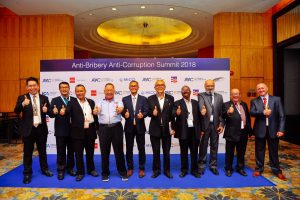


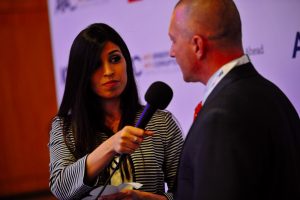
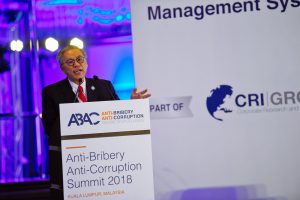
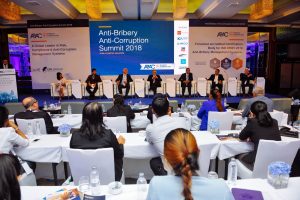



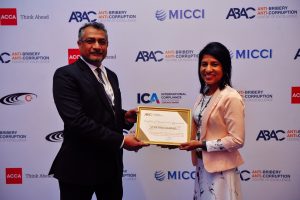
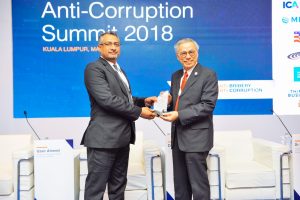
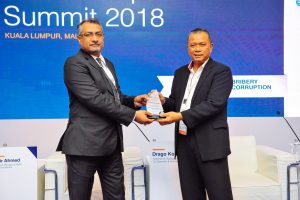
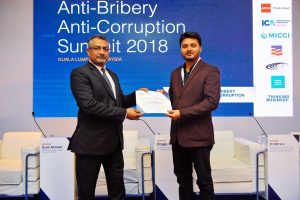
CONTACT US
Headquarter: +44 7588 454959
Local: +971 800 274552
Email: info@crigroup.com
Headquarter: 454959 7588 44
Local: 274552 800 971
Email: info@crigroup.com
NEWSLETTER SUBSCRIPTION